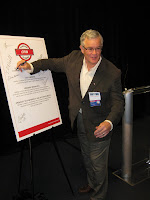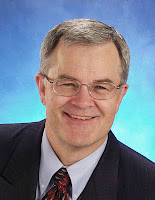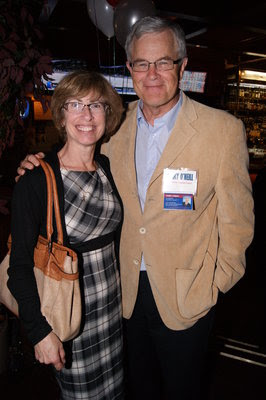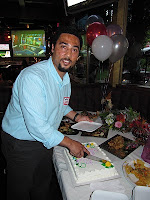
Here's the full text of
Jon Ferry's column in today's Province:
Candidates should disclose all cash contributions Taxpayers deserve to know who exactly is funding those for whom they plan to vote for By Jon Ferry, The Province November 16, 2011
Miraculous though it may seem, I've actually found something on which I agree with Occupy Vancouver. And that's the local protest movement's call for "immediate and full disclosure of all developer and corporate contributions to all civic election campaigns."
But why stop there? Why not require the immediate and full disclosure of all contributions over a certain dollar amount — including those from environmental groups and unions representing municipal workers?
In the 2008 election, the Canadian Union of Public Employees and its locals donated nearly $700,000 to parties and candidates across Metro Vancouver, according to the Vancouver Sun's donations database.
The biggest recipient of CUPE's cash was Vision Vancouver, which got $260,000. The green-leaning Vision also received as much as $340,000 from a network of eco-friendly investment and public-relations companies, according to North Vancouver writer/researcher Viviane Krause.
Taxpayers should be at least as aware of these contributions as they are of those from big, bad developers and other corporations.
And, yes, they should learn about them before the election — not as much as four months after it, as is the current rule. Larger donations should be posted on candidates' websites for public viewing as soon as possible, after they're received.
CUPE, for example, represents workers with whom municipal councillors are supposed to have an arm's-length relationship, especially when it comes to labour contract negotiations. The council members are, in fact, their employer.
Richard Walton, running for his third term as North Vancouver District mayor, told me Tuesday he's been endorsed again by CUPE. But he hasn't accepted money from the union, because doing so would make him uncomfortable.
"My objectivity is pretty important to me," he noted.
I think objectivity should be important to all candidates. Indeed, my view is that the special relationship the influential union may enjoy with certain councillors through campaign donations does municipal ratepayers no favours — at least judging by their soaring property tax bills.
Coquitlam candidate Terry O'Neill points out that Neal Nicholson, winning candidate in the 2010 byelection, received most of his funding from labour groups, including half ($15,000) from the CUPE local representing Coquitlam city workers.
O'Neill added that CUPE B.C. is actually listed as Nicholson's "campaign organizer."
"Can you imagine the howls from the left and the mainstream media if, for example, the Business Council of British Columbia had fielded its own candidate, provided a majority of the candidate's campaign funds and organized the candidate's campaign?"
Nicholson, running again in Saturday's election, told me CUPE did not, in fact, organize his campaign — but did conduct mail-outs promoting his candidacy. He didn't think accepting union donations put him in any conflict or he wouldn't have taken them.
Nicholson, though, did say there should be election-spending limits. He also said he had no problem with posting details of the larger donations (say those over $1,000) as they came in: "I'm an accountant, I'm reasonably tech-savvy, so I wouldn't have a big challenge with that."
I don't think other municipal candidates should have a problem with it either. Taxpayers deserve to know in timely fashion who exactly is funding those for whom they plan to vote for.
jferry@theprovince.com
© Copyright (c) The Province

















































